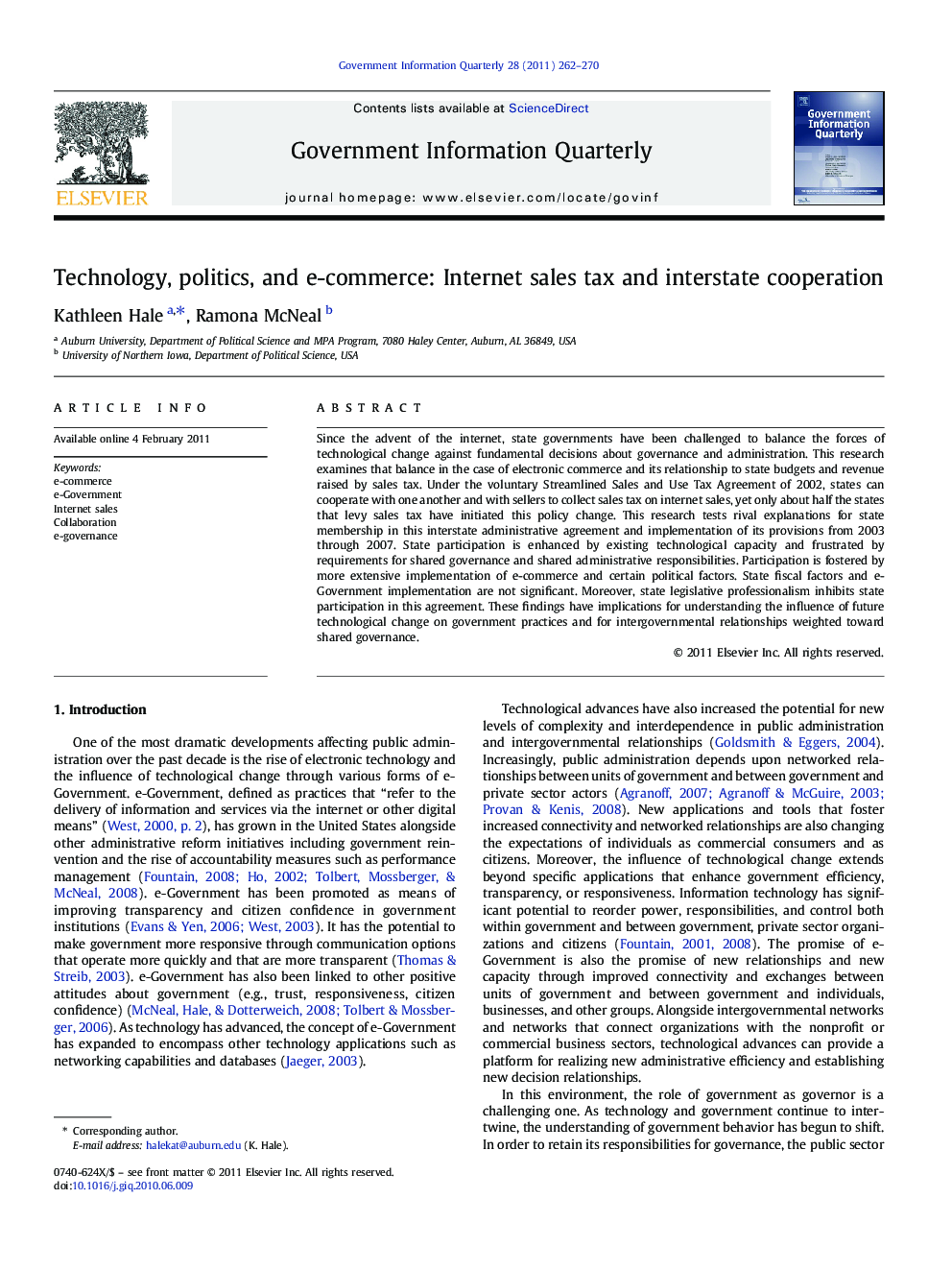| Article ID | Journal | Published Year | Pages | File Type |
|---|---|---|---|---|
| 1024621 | Government Information Quarterly | 2011 | 9 Pages |
Since the advent of the internet, state governments have been challenged to balance the forces of technological change against fundamental decisions about governance and administration. This research examines that balance in the case of electronic commerce and its relationship to state budgets and revenue raised by sales tax. Under the voluntary Streamlined Sales and Use Tax Agreement of 2002, states can cooperate with one another and with sellers to collect sales tax on internet sales, yet only about half the states that levy sales tax have initiated this policy change. This research tests rival explanations for state membership in this interstate administrative agreement and implementation of its provisions from 2003 through 2007. State participation is enhanced by existing technological capacity and frustrated by requirements for shared governance and shared administrative responsibilities. Participation is fostered by more extensive implementation of e-commerce and certain political factors. State fiscal factors and e-Government implementation are not significant. Moreover, state legislative professionalism inhibits state participation in this agreement. These findings have implications for understanding the influence of future technological change on government practices and for intergovernmental relationships weighted toward shared governance.
Research Highlights► Adoption of voluntary electronic sales tax policy across American states over time. ► Extant technological and fiscal capacity and political factors influence adoption. ► Requirements for shared governance and administration hinder adoption. ► Factors that influence shared governance, technology, and administration. ► Factors that influence voluntary policy adoption in American federalism.
